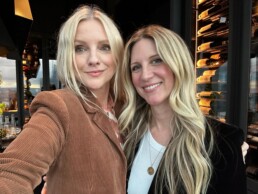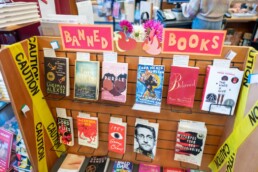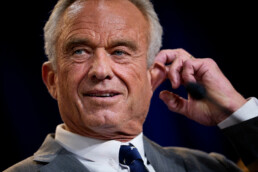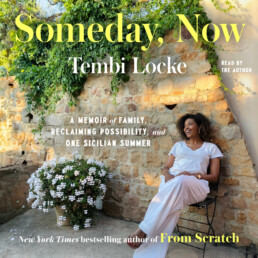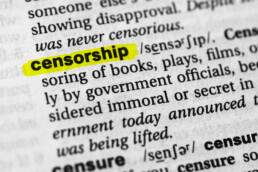Three Questions About...Getting Fired
No shame in getting shitcanned, say Laura Brown and Kristina O’Neill
By Cindi Leive
Getting unceremoniously sacked has always been an occupational hazard for magazine editors; back in the 1980s, Vogue’s Grace Mirabella reportedly found out she’d been let go when she heard it on the TV show Live at Five. But when it happened to Laura Brown (the former head of InStyle) and Kristina O’Neill (of WSJ Magazine), they eventually realized that, to quote Nora Ephron, everything is copy. These two friends (and, full disclosure, friends of mine) sat down to write a book about the experience: All the Cool Girls Get Fired, in which everyone from Oprah to Jane Fonda tell their own pink-slip stories.
It couldn’t be better timed. Earlier this fall I ran into an acquaintance on the subway and was telling her about the book. We noticed a woman next to us leaning close. “I”m sorry,” she said, “would you mind saying the name of that book again? I need it.”
In case you do too, here are three questions for the authors.
My first question is, the book is All the Cool Girls—not all the cool boys—Get Fired. So I'm curious—how is the experience of getting fired for women different than it is for men? Obviously, it happens to them too.
Kristina O’Neill: We noticed that there was a universality around the shame and the embarrassment and the disappointment that women respond to this sort of life event with. We noticed that a lot of men, if it has happened to them, it almost becomes part of their armor and part of their narrative—I mean, Steve Jobs, Mike Bloomberg, they made getting fired part of their entire work journey. Whereas when we sat down to write this book, we couldn't easily identify women who, after having been fired, owned it. It does seem like women have a harder time just saying what happened to them and moving on psychologically.
Laura Brown: I asked [human resources pro] Bucky Keady: Why does it hit so much harder [for women]? And in one second she said, “Because it took so much longer to get there. It took us so much longer to get into that room.” So many of us feel shame and wallow. But it’s futile. And you have a community, but you're not going to find the community unless you put your hand up: Actually, me too. That happened to me as well. And then, God, that's a help. That's such a relief. But you have to speak up.
Whose story of being fired surprised you, or made you see their career differently?
KO: We were really struck by how many women hadn't talked about it before. Katie Couric, for example, kept saying, Well, they didn't renew my contract, and it was almost like a revelation in the conversation when I think it sort of dawned on her, like, Yeah, I guess I was getting fired! We [also] talked to a sports agent, Lindsay Colas, who’s brilliant and who literally got Brittney Griner out of prison in Russia, and another client called her after she got Brittney out of jail and said [something to the effect of], “You haven't been paying enough attention to us, we're going to go with a different agency!”
So fired looks different for everybody: the language around it, the experience, the aftermath. But the universal thing is you feel like shit.
LB: One of my favorite stories was from Tarana Burke; she was running an organization in Philly and she was comfortable there. Then she got fired. And in all this time, me too was sort of lying dormant in her head. So when she was fired, she was then allowed to open her mind to proceed with that. She said, I kept thinking, You've been carrying other people's visions to fruition for too long. And she was able to carry her own.
How much did you know about Oprah’s firing [from her job as co-anchor of the Baltimore evening news] before interviewing her?
LB: We knew the story a little, but again—it wasn’t the [big narrative] about her. She should be on the fired Mt. Rushmore with Steve Jobs and Mike Bloomberg and everyone else! When we talked to her, her memory of the firing was like muscle memory. It was so visceral. [“I really have never talked about it,” says Oprah in the book.] She remembered what the managing director of the TV network was drinking. She remembered it was April Fools’ day, and she thought it was an April Fools’ joke. Bang, bang, bang, bang, bang, she remembered all these things because sadly—it's almost like with Instagram comments when you remember the negative one and you forget all the nice ones. And Oprah got upset about it anew, but she was us. She was ashamed to tell her dad, she was ashamed she lost her job. But her story reminds you that [getting fired] fires up your dreams too.
KO: If it hadn't happened to her, she would've never been in the prime position to be put up for that talk show.
LB: Oprah told us, The setback is a setup. It's so tidy, but it's absolutely true: That thing that knocks you down can spring you back.
6,870 Book Bans
 October 10, 2025 Happy Friday, Meteor readers, Wishing a peaceful weekend to everyone except Kacie. Girl, does the word accountability mean anything to you?  Today’s newsletter is one for the book…bans. Plus, a much-deserved just-announced Nobel winner, a new side gig for Angel Reese, and your weekend reading list.  WHAT'S GOING ONTomorrow is the last day of Banned Books Week, and man, the book banners have been going hard this year. According to the latest report from PEN America, there were over 6,000 incidents of books being banned or challenged during the 2024-2025 school year—almost three times as many as just three years ago. (No wonder Gen Z can’t read.) And the bans have implications for some students more than others: “Not all students have access to just buying books on Amazon,” PEN America’s Kasey Meehan told USA Today. “Not all students have access even to public libraries in their neighborhood that they can get to by foot or by bike or even by car.” You might assume that this rapid rush to purge schools of titles like Clockwork Orange (the most-banned book) and Breathless (number two, and a good read!) is the result of laws and White House executive orders forcing educators’ hands. But the PEN report found something even more disturbing: Schools are also removing “vast numbers” of books out of fear of getting in trouble, whether or not they are legally compelled to do so. “This functions as a form of ‘obeying in advance’ to anticipated restrictions from the state or administrative authorities, rooted in fear or simply a desire to avoid topics that might be deemed controversial,” PEN concludes. Parents and ultra-conservative groups have poured so much time and energy into filing challenges to books, in other words, that for educators, it’s sometimes easier not to have a book on shelves at all than to spend weeks fighting over whether it can stay there. And that makes the passage of actual laws requiring the removal easier. In Utah, South Carolina, and Tennessee, PEN reports an “unprecedented phenomenon” in which states as a whole are adopting “no read” lists, wherein all school districts in the state must adhere to certain books that had been flagged in multiple districts. (Sorry, Water for Elephants, that means you.). And if you’re wondering which authors get banned most, a look at the ten most-banned writers this year is revelatory: While the hyper-prolific Stephen King tops the list, he is the only white male writer; seven of the most-banned ten are women of various races, and the other two are men of color. All of which is why it’s so important to get involved with what’s going on in your community. You can support legislation that will allow libraries to carry all kinds of reading; you can buy some banned books and pass them around your neighborhood this year; and, if you’ve got time tomorrow, you can participate in Let Freedom Read Day. AND:
 MACHADO EARLIER THIS YEAR AT AN ANTI-GOVERNMENT PROTEST IN CARACAS. (VIA GETTY IMAGES)
 WEEKEND READING 📚On ignorance not being bliss: Why are so many white people shocked—shocked!—at the state of the country? (Rewire News Group) On romance: In a new memoir, Malala Yousafzai shares the story of a love that changed her life. (Vogue) On the “be yourself” trap: A new book explains how “authenticity” is often a double bind for people of color in the workplace. (The Guardian)  FOLLOW THE METEOR Thank you for reading The Meteor! Got this from a friend?
|
![]()
An "Invasion" at Home
 October 7, 2025 Salutations, Meteor readers, Spooky season is fully upon us. The apples are cidered, and the pumpkins are spiced. Delicious.  In today’s newsletter, we take a look at Operation Midway Blitz in Chicago. Plus, a new doll for the sports fans.  WHAT'S GOING ONDespite objections and a lawsuit from the state of Illinois, Trump has deployed the National Guard to Chicago to augment ICE agents and detention facilities across the state. Governor JB Pritzker released a statement saying, “We must now start calling this what it is: Trump’s invasion.” Perhaps it seems like an overstatement to refer to the increased presence of federal agents and the National Guard as an invasion, but let’s look at the facts. Last month, the Department of Homeland Security initiated something called Operation Midway Blitz, which was designed to “target the criminal illegal aliens who flocked to Chicago and Illinois.” DHS claims this operation was driven by the death of a young Illinois resident, Katie Abraham, who was killed in a drunk driving incident in which the driver was an immigrant. So what’s come of it? Well, in the 30 days that Midway Blitz has been active, Block Club Chicago reports that ICE officers have shot two people, tear-gassed protestors, detained children and a journalist, choked a man, and shot a chemical agent into a reporter’s car—all under the guise of protecting U.S. citizens from immigrants. When pressed about children who had been detained and zip-tied, Russell Hott, the field director overseeing Midway Blitz, said, “Children have been encountered pursuant to arrests for targets. In those instances, there have been parents that wanted to bring their children with them, and we have accommodated that.” That so-called accommodation happened during an overnight raid at a South Shore apartment complex last week, where children were removed from their homes in the middle of the night, and 37 people were taken into custody. Chicagoans have been protesting Midway Blitz at every opportunity, which is why, according to Trump’s logic, the National Guard had to be brought in. But these moves aren’t just meant to instill fear into immigrants—they’re also meant to aggravate and worsen existing divisions in Black and Latine communities, which, despite having linked struggles in the United States, have often been at odds due to the racialization of different Latine groups, anti-Blackness, and political manipulation. When ICE agents pursued and choked a man in East Garfield Park last Wednesday, witnesses allegedly shouted at the officers, “He’s not Mexican, he’s Black,” in order to get them to stop harassing the man. These divisions are not a secret to the administration; they know we cannot fight them if we are busy fighting each other. But worsening immigration raids are not simply a “Latino issue” or a Mexican issue; they are a problem for everyone who doesn’t fit the ideal of what an American looks like—yes, that means anyone not white or white-presenting. Anti-immigration policy is, at its most basic level, rooted in racism, and that has never been clearer than it is now. The Trump administration does not want brown, Black, Asian, Chicano, or any other type of people living in the United States (Trump does want white South Africans, though), and Trump is using every tool available to him to make this country in his own crusty caucasian image. So once again, it is on We the People to do the work ourselves. We aren’t going to solve intraracial relations overnight, nor will we pretend they don’t exist. What we can do is recognize that our survival as people of various groups is inextricably linked.  AND:
 THE NEW DOLLS ARE MODELED AFTER ELLIE KILDUNNE, ILONA MAHER, NASSIRA KONDE, AND PORTIA WOODMAN-WCKLIFFE. (VIA MATTEL)
 FOLLOW THE METEOR Thank you for reading The Meteor! Got this from a friend?
|
![]()
Good Abortion News Still Exists
 October 3, 2025 Greetings, Meteor readers, You already know what I’ve been thinking about all day:  In today’s newsletter, we tip our hats to the advocates doing the darn thing in South Carolina. Plus, an American cheese queen and your weekend reading list. Love ya, mean it, bye, Shannon Melero  WHAT'S GOING ONPushback in South Carolina: On Wednesday, an all-male committee held a public hearing on South Carolina’s SB 323, the most draconian and vile proposed abortion ban in the country (and that’s saying a lot). The men of the Senate Medical Affairs Committee were joined by so many advocates and protestors that they needed two overflow rooms to hold everyone. All in all, the committee listened to more than seven hours of testimony from those who supported the ban and those who opposed it, including Tori Nardone of South Carolina’s Women’s Rights and Empowerment Network, who spoke with The Meteor earlier this week. Even some anti-abortion groups joined the opposition, claiming the bill goes too far and would be harmful to pregnant women. That’s how extreme this bill is! So what happens next? After this week’s hearing, the committee will meet again privately to discuss next steps on this bill. A vote hasn't been scheduled, and there is a strong chance that it will not survive the regular legislative session, which begins in January. Hope is alive! The FDA, doing its job: Speaking of hope: Hours before the government shutdown on Tuesday, the FDA approved a generic version of the abortion pill mifepristone. (Quick point of clarity here: Mifeprex, which received FDA approval in 2000, is the “brand” name, while mifepristone is the drug itself.) This is actually the second mifepristone generic to be approved by the FDA, following GenBioPro in 2019. The irony here is, of course, that both of these moves occurred during Trump’s time in office—and they are both instances in which a government agency actually functioned as intended, since legally the FDA must approve a generic if the manufacturer can prove it’s identical to the branded version. Evita Solutions, makers of the new generic, applied for approval in 2021, and following an extensive review period, the FDA found that the drug is “bioequivalent and therapeutically equivalent” to Mifeprex and therefore safe to be used as an abortifacient. But in contrast to the 2019 approval, the MAGA faithful are furious that the FDA would do something as heinous as…carry out the tasks and responsibilities assigned to it in compliance with the law. How dare they! AND:
 PHEE ISN'T HERE FOR THE FOOLISHNESS, CATHY! (VIA GETTY IMAGES)
 WEEKEND READING 📚On (show)girlhood: What do Taylor Swift and Shakespeare’s Ophelia have in common? They’re both whatever we want them to be. (Teen Vogue) On Mother Benson: Why are we all still so obsessed with Captain Olivia Benson, arguably the only good police officer in the NYPD? (Dame Magazine) On rebuilding: A year after Hurricane Helene devastated entire counties and much of the Appalachian Trail, conservationists are still working to repair it. (National Parks Traveler) On looking back: Palestinian journalist and new memoirist Plestia Alaqad, 23, sometimes can’t believe the things she’s survived. (Teen Vogue)  FOLLOW THE METEOR Thank you for reading The Meteor! Got this from a friend?
|
![]()
An Abortion Ban That's "Just So Vile"
 October 1, 2025 Greetings, Meteor readers, Eight years ago this week, the world watched as Carmen Yulín Cruz Soto, then the mayor of San Juan, Puerto Rico, stood in front of a room full of reporters and pleaded for help in the aftermath of Hurricane Maria. “We are dying, and you are killing us with inefficiency,” she said, referring to President Trump and FEMA. With tears in her eyes and defiance in her voice that day, Cruz Soto added, “We will make it with or without you.” It was a moment that will stay with me forever—the moment it became crystal clear how little the United States cared about the people it had worked so hard to colonize. For some time, it felt as if all the world saw when it looked at Puerto Rico was a land perpetually recovering from a hurricane. But after millions of records sold and an historic residency in El Choli, Bad Bunny has brought the eyes of the world to Puerto Rico not for her despair but for her art, music, culture, and history. So on Sunday, when it was announced that he would be headlining the next Super Bowl, it felt like an enormous middle finger to the colonizers. And when he hits that stage, it will be with our flag and our music. On February 8, millions will watch what journalist Susanne Ramirez de Arellano describes as “a Puerto Rican singing in Spanish on the most precious stage of the colonizers.” I think it will be the sweetest sound I ever hear.  READY YOUR PLENA DRESSES FOR FEBRUARY SISTREN. (VIA GETTY IMAGES) But until the blessed day is upon us, let’s see what else is going on in the world. First, we head to South Carolina to understand a “nightmare” abortion bill. Then a quick flight to New York, where Mattie Kahn introduces us to an unexpected RHONY candidate. Shannon Melero PS: The Meteor will be closed on Thursday for Yom Kippur, so we will see you all on Friday when we’re back.  WHAT'S GOING ONThe very worst ban: One of the most extreme abortion bans in the country has its first hearing tomorrow in the South Carolina statehouse, where lawmakers and civilians will have a chance to show support or opposition for Senate Bill 323—a bill so vile that Tori Nardone, the communications manager for Women’s Rights Empowerment Network (WREN), tells The Meteor that “it cannot be allowed to move another inch.”. What makes SB 323 unique among other abortion bans in the U.S.? “It’s a bill that would treat abortion essentially as a homocide,” Nardone says. It would do so by re-labeling embryos as persons under the law, a change that would enable the criminalization of anyone who destroys an embryo, whether they’re a medical provider or a pregnant person. (Currently, no other state criminalizes pregnant people for having abortions, but providers and manufacturers have come under fire.) “This bill doesn't just limit abortion,” Nardone explains. “It threatens contraception, IVF, miscarriage care, and even free speech.” Under SB 323, anyone sharing information on how to obtain an abortion, even one outside the state of South Carolina, could be held criminally liable. “IVF often involves creating multiple embryos, some of which may not be implanted, so redefining embryos as full legal persons could criminalize very standard IVF procedures that people need and want to grow their families,” Nardone says. The bill would also ban medication abortion, remove exceptions for incest and rape, create a gag order on sharing abortion information, and establish a bounty hunter law by which individuals can sue anyone who may have helped someone get an abortion. To put it in the simplest terms: imagine if the most extreme part of every existing abortion ban was stitched together to make a Frankenstein’s monster of bans. That is SB 323. Tomorrow’s hearing in the statehouse is scheduled outside of the regular legislative session— a sign that the South Carolina GOP is eager to put it on a national stage, which Nardone says is detrimental to women everywhere. “Passing this bill would set a very dangerous precedent for other states to follow,” Nardone says.“This isn’t just a South Carolina problem,...This is a national issue.” Nardone herself has volunteered to speak tomorrow at the state house, where she will tell her own personal story of seeking abortion care, and she hopes that the hundreds of others who have volunteered to speak will illustrate the severity of this bill. As Nardone puts it: “It’s just so vile.” As always, now is the time to make noise. Call your senators, email them, email their assistants, and their assistants’ assistants. There is still time to ensure that this bill never makes it to a first round of voting.  MEANWHILE IN NEW YORK...New York City Mayor Eric Adams has announced that he is dropping his bid for re-election, ending his lackluster campaign for a second term. Now he did have to go. His poll numbers had sunk to new lows, he had been charged in a federal corruption case (later dropped), scandal had engulfed his administration, and he has lied about—among other things—the actual value of his rental income, his experiences with a neighbor’s dog, and being vegan. These are bad qualities in an elected official, from whom we should expect ethical leadership and transparent accounting. But—and please hear me out—these are great qualities in a Real Housewife of New York! As he contemplates life after Gracie Mansion, I’d like to encourage Eric Adams to pursue a new sphere of influence: The Bravoverse.  ADAMS, ALREADY MAKING FRIENDS WITH HIS POTENTIAL FUTURE CO-WORKERS, REAL HOUSEWIVES OF NEW JERSEY STARS JOE AND MELISSA GORGA. (VIA GETTY IMAGES) Let’s consider the evidence: Like some of our best Housewives, Adams has a nice smile, is defensive and self-interested, and loves a good time. I do not trust him to balance a budget or build affordable housing, but I know he could plan a fabulous girls’ trip (just think of the perks that must come with his status on Turkish Airlines). This man looks at home in a sprinter van. He holds an endless number of grudges. He believes in ghosts. And at least 30% of what comes out of his mouth in public could double as an iconic tagline. See: “My haters become my waiters when I sit down at the table of success.” Or: “Lions don’t lose sleep over the opinions of sheep.” Ramona Singer wishes! Our own Shannon Melero offers the perfect tag line: “I ran New York… I know when I smell a rat.” New Yorkers believe in second chances. For Eric Adams, atrocious leader, redemption is possible! All he needs is to host a rat-themed season finale gala. Andy Cohen, call him! — Mattie Kahn  AND:
 THE LIBRARY IS OPEN!! (VIA GETTY IMAGES)
 FOLLOW THE METEOR Thank you for reading The Meteor! Got this from a friend?
|
![]()
"A revolution has begun. There is no going back."
On the anniversary of the Beijing women’s conference, a blueprint for a brighter future
Thirty years ago this month, women from around the world gathered for a conference that made history and, as it turned out, would not happen again. The 1995 UN Fourth World Conference on Women in Beijing was a monumental moment for activists and world leaders who came together to “answer the call of billions of women who have lived, and of billions of women who will live,” as the first female Prime Minister of Norway, Gro Harlem Brundtland, put it at the time. It’s the meeting at which then-First Lady Hillary Rodham Clinton, building on years of women’s organizing, famously said, “Women’s rights are human rights,” which made global news because it was (and apparently remains) a radical perspective.
The journey to the conference—which is documented in a new multimedia project from the United Nations Foundation and co-produced by The Meteor—was two decades long, with previous meetings held in Mexico City, Copenhagen, and Nairobi. Beijing itself was the largest women’s rights gathering at that point in history, with a massive audience of 45,000 people invested in building a better future. Pulling it off was no small task, but the leaders charged with doing so were more than up to it. Among them was the inimitable Gertrude Mongella of Tanzania, the Secretary-General of the conference, who later became known as Mama Beijing. “A revolution has begun,” she said during a closing speech at the Conference, “there is no going back.”
Mongella was a key player in producing the Beijing conference’s most significant document: The Beijing Declaration and Platform for Action—which remains the most comprehensive blueprint for gender equality and women’s rights ever created. It wasn’t just a wish list; 189 countries committed to it in Beijing. It demanded women’s inclusion in government and policymaking; economic policies built with gender in mind; the understanding that violence against women is a human rights violation; and was also one of the first international agreements to demand that governments complete a thorough analysis of how climate change and industrialization had affected women. From the Platform: “The continuing environmental degradation that affects all human lives has often a more direct impact on women…Those most affected are rural and Indigenous women, whose livelihood and daily subsistence depends directly on sustainable ecosystems.”
You probably know how this ends: While some of the Platform’s key goals have been achieved—women’s representation in government, for instance, has risen—many have yet to be fulfilled, 30 years later, not because of an absence of activism, but because of global backlash and competing priorities. But the women at the forefront of global change remain motivated. When asked what the next global feminist conference should focus on, Nyasha Musandu of the Alliance for Feminist Movements put it this way: “We must dare to dream bigger, disrupt deeper, and build bridges across movements. The fight for justice is not just about breaking barriers—it’s about reimagining the world itself.”
The ICE Stories We Don't See on Camera
 September 25, 2025 Greetings Meteor readers, It’s been a very long week, but a delightful one in my life as one of my closest friends just had her first child (and no, I’m not talking about everyone’s bestie Rihanna).  BADGALRIRI BUT MAKE IT MINI (SCREENSHOT VIA INSTAGRAM) In today’s newsletter, we consider the lives lost in ICE custody. Plus, we commemorate the 30th anniversary of the historic United Nations Fourth World Conference on Women in Beijing. Baby C’s auntie, Shannon Melero  WHAT'S GOING ONYesterday, a young man opened fire across from an ICE detention facility in Dallas, Texas, killing one detainee and critically injuring two others before taking his own life, the AP reports. Little is known about the shooter and his motivations, but the Trump administration is already making early claims that this was an ideologically motivated killing based on writings allegedly tied to the shooter, and ammunition found at the scene that read “ANTI-ICE.” This is an ongoing investigation, and as details unfold, we will hopefully know and understand more. But something we know right at this moment is that, even prior to this shooting, 19 people have died in ICE custody this year. That’s 19 human beings—some possibly dead as a result of human rights violations while in federal custody. It is an ongoing tragedy, and perhaps what makes it even more tragic is that it is mostly going unnoticed. The actual taking of humans into ICE custody has stirred attention and outrage. Videos of immigrants and legal citizens across the country being snatched off the streets have gone viral; each time, we are angry, and we question why federal agents are wearing masks. But then what? For the most part, what happens to detained people next takes place with little media attention, except in a few cases that manage to hold the national attention, albeit briefly. But overall, ICE detainees are being disappeared and, now, 20 of them have disappeared permanently. Twenty lives may seem like a negligible number, especially with 58,000 individuals currently being held in detention centers around the country. But each one of them matters—to their families and to us. And when we go about our days as normal and no outcry accompanies these deaths, the administration gets the message that Americans are willing to tolerate at least this level of violence. What else might they do, counting on our silence? To find out what to do if you see ICE agents in your neighborhood, check out this comprehensive explainer from The Intercept. AND:

 “A revolution has begun. There is no going back.”On the anniversary of the Beijing women’s conference, a blueprint for a brighter future ONE OF THE OPENING DAY SESSIONS FOR BEIJING (VIA GETTY IMAGES) Thirty years ago this month, women from around the world gathered for a conference that made history and, as it turned out, would not happen again. The 1995 UN Fourth World Conference on Women in Beijing was a monumental moment for activists and world leaders who came together to “answer the call of billions of women who have lived, and of billions of women who will live,” as the first female Prime Minister of Norway, Gro Harlem Brundtland, put it at the time. It’s the meeting at which then-First Lady Hillary Rodham Clinton, building on years of women’s organizing, famously said, “Women’s rights are human rights,” which made global news because it was (and apparently remains) a radical perspective. The journey to the conference—which is documented in a new multimedia project from the United Nations Foundation and co-produced by The Meteor—was two decades long, with previous meetings held in Mexico City, Copenhagen, and Nairobi. Beijing itself was the largest women’s rights gathering at that point in history, with a massive audience of 45,000 people invested in building a better future. Pulling it off was no small task, but the leaders charged with doing so were more than up to it. Among them was the inimitable Gertrude Mongella of Tanzania, the Secretary-General of the conference, who later became known as Mama Beijing. “A revolution has begun,” she said during a closing speech at the Conference, “there is no going back.” Mongella was a key player in producing the Beijing conference’s most significant document: The Beijing Declaration and Platform for Action—which remains the most comprehensive blueprint for gender equality and women’s rights ever created. It wasn’t just a wish list; 189 countries committed to it in Beijing. It demanded women’s inclusion in government and policymaking; economic policies built with gender in mind; the understanding that violence against women is a human rights violation; and was also one of the first international agreements to demand that governments complete a thorough analysis of how climate change and industrialization had affected women. From the Platform: “The continuing environmental degradation that affects all human lives has often a more direct impact on women…Those most affected are rural and Indigenous women, whose livelihood and daily subsistence depends directly on sustainable ecosystems.” You probably know how this ends: While some of the Platform’s key goals have been achieved—women’s representation in government, for instance, has risen—many have yet to be fulfilled, 30 years later, not because of an absence of activism, but because of global backlash and competing priorities. But the women at the forefront of global change remain motivated. When asked what the next global feminist conference should focus on, Nyasha Musandu of the Alliance for Feminist Movements put it this way: “We must dare to dream bigger, disrupt deeper, and build bridges across movements. The fight for justice is not just about breaking barriers—it’s about reimagining the world itself.”  WEEKEND READING 📚🎧On the business of babies 🎧: Kindbody was poised to be a “disruptor” in the fertility industry. Was the human cost worth it? (IVF Disrupted) On your problematic friends: Emma Watson is still trying to grapple with her relationship to anti-trans author J.K. Rowling. (The Cut) On the shoulders of wives: There is one thing that makes it a little easier to drive a country toward fascism: a complicit housewife. (The Guardian)  FOLLOW THE METEOR Thank you for reading The Meteor! Got this from a friend?
|
![]()
Does RFK Jr. Know the Scientific Method?
 September 22, 2025 Greetings, Meteor readers, We are closed tomorrow in observance of Rosh Hashanah, but we couldn’t let you go into the week without your favorite newsletter! But before we take a little rest, let’s talk about Tylenol. Raw dogging our headaches, Shannon and Mattie  WHAT'S GOING ONFor the past two weeks, news has been swirling that the Department of Health and Human Services is expected to announce a potential link between pregnant people’s use of Tylenol and a supposed increased risk of autism in children. Those reports intensified over the weekend, and senior officials are now briefing media outlets on background. The timing makes perfect sense for exactly one person and no one else: That would be HHS Secretary Robert F. Kennedy Jr. Yes, the same man who is imperiling millions of children with his documented anti-vaccine agenda and has admitted to having a literal brain worm. Several months ago, he said that he intended to find the root causes of autism before the end of September. With October on the horizon, he must be feeling the pressure. So here we are. The expected new guidance—which is expected to drop before the end of the week—will tell pregnant women not to use Tylenol except in cases of high fevers, robbing them of one of the few options they have to manage pain for the 40 weeks they spend growing another human. (Doctors have long recommended Tylenol, the name brand for the generic acetaminophen, because similar fever reducers and pain relievers like Ibuprofen, the generic drug behind Advil, have a documented association with miscarriage and potential fetal harm.) The obvious question, of course: Is Tylenol dangerous? While some limited research has suggested a possible association between Tylenol consumption and autism, larger studies—including a recent and major examination of the outcomes of 2.5 million children in Sweden—have turned up no connection. And the American College of Obstetricians and Gynecologists recently affirmed the recommendation of Tylenol in a recent statement to CBS News, telling the outlet that “there is no clear evidence that proves a direct relationship between the prudent use of acetaminophen during pregnancy and fetal developmental issues.” The prevalence of autism has increased over the past 25 years, according to CDC statistics, with a range of possible explanations. One that we know to be true is that the definition for what constitutes the condition has changed and expanded, making it easier to be diagnosed (and to access services). What we also know to be true? The drug Tylenol has been available over the counter for almost 70 years—well before the documented growth in cases. So scientists, researchers, and those who can count agree: Tylenol is not the likeliest culprit for the increase in autism rates. They reach that conclusion via the scientific method, which isn’t just a unit in high school curricula. It’s an actual process that actual scientists respect. It involves investigating observable phenomena through rigorous testing and careful experimentation. It does not involve setting self-imposed deadlines and drumming up questionable research to meet them. But there is no doubt that this announcement will confuse pregnant women, their providers, and their families. It will, in all likelihood, make those who are experiencing pain while pregnant (that’s 100% of pregnant people, FYI) hesitate before treating it, wondering if their degree of discomfort justifies a dose of relief. (Even though we know that stress and pain can themselves lead to adverse outcomes for babies, including preterm birth, low birth weight, high blood pressure, and other complications.) This announcement will not make pregnant women or children safer or healthier, but it will sow more doubt in the medical establishment, and it will make women suffer. — Mattie Kahn AND:
 I BELIEVE THIS IS WHAT THE YOUNG PEOPLE CALL AURA. (VIA GETTY IMAGES)
 FOLLOW THE METEOR Thank you for reading The Meteor! Got this from a friend?
|
![]()
It’s Time to Rethink the “Empty Nest”
Author Tembi Locke talks about the grief, joy, and evolution of sending a child out into the world
By Rebecca Carroll
When I was a budding young feminist growing up in the 80s, I would occasionally hear adults use the term “empty-nest syndrome” to describe the experience parents go through when their children leave home for college. The narrative around it was always very gendered, and usually homed in on the loss of identity for the mother: Who even was she without her children at home? I remember thinking, both judgmentally and naively, “Oh my god! Your children are not your identity! Women are more than just mothers!” I also thought it was a classist assumption that all kids go to college, but whatever.
Decades later, as I find myself going through this experience myself (my son just started his third year of college), I’ve come to realize that “empty-nest syndrome” is not about whether or not your kids are your identity, but rather, the complex shift in dynamic that happens when your children leave home, and the overwhelming sense of grief that can come along with it.
Lucky for me, and all of us, bestselling author Tembi Locke has a new audiobook memoir, Someday, Now, that is about precisely this. Locke’s first memoir, From Scratch, which was adapted into a Netflix miniseries starring Zoe Saldaña, followed her experience as a young woman studying abroad in Florence, where she falls in love with an Italian chef, marrying him, and then losing him to a rare form of cancer when their adopted daughter Zoela is just seven. Someday, Now picks up after more than a decade of Locke single-parenting Zoela, and it’s the summer before she’s about to leave for college. The two take a trip back to Italy together to prepare, reimagine, and find joy in the culture and comfort of extended family in another country. I was delighted to sit down with Locke to talk about this period of life that is often so swiftly dismissed, especially for women.
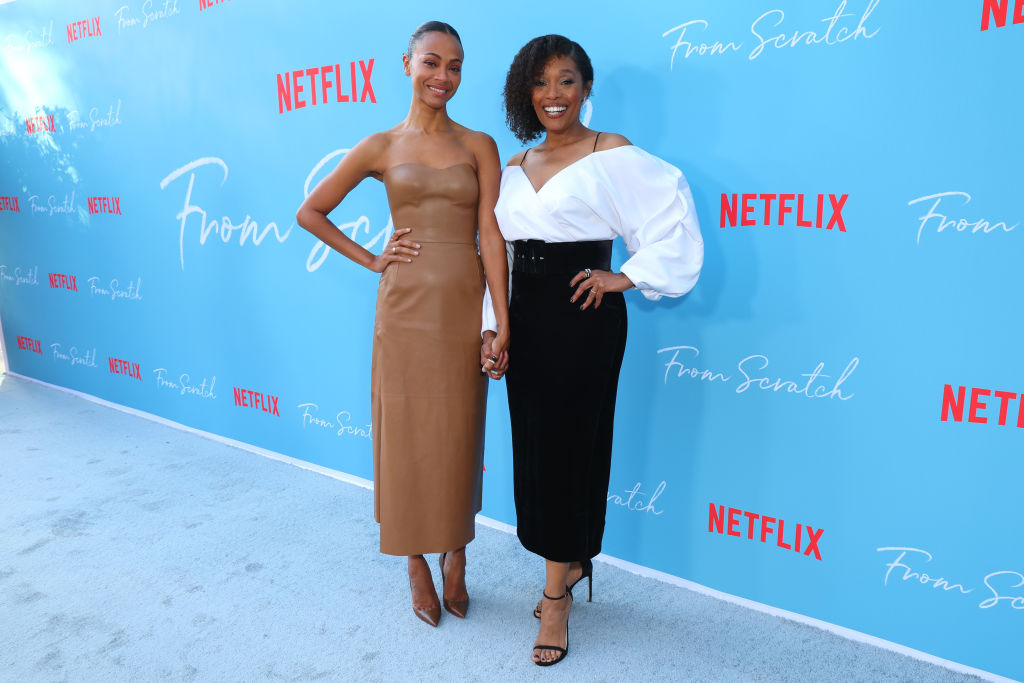
Rebecca Carroll: What are your feelings about the actual term “empty nest”?
Tembi Locke: I rebuke the word “empty” because nothing about my life is empty. Not my spirit, not my relationship with my child. And I’m not going to characterize my life with an adjective that starts with “empty.” I choose instead to take this time to think about what is full in my life, and what I would like to invite back into my life. I didn’t rush into a bunch of hobbies. I didn’t rush into a Zumba class. I just needed to hang out in the question and see what would emerge.
What do you think people get wrong about navigating this time in our lives as parents?
That there is a-one-solution-fits-all. Like, “Okay, I’ll cry. I’ll have my feelings the first month or so. And then I guess it just all kind of resolves itself in some way.” There’s this sense of not slowing down to acknowledge the depth, the tectonic shifts that are happening. I had a work colleague who said something along the lines of, “Oh, well, now you'll just have more free time, you can do more work!” And I was like, “I am so sorry. I lean way the hell out of that thought.” I actually need to slow down and really take inventory before I proceed.
I was so struck by the way you connected your grief about Zoela leaving with your grief over losing your husband. When my son left for college, it almost felt like a sick joke: Having this child of my body was such a balm, and then 18 years later, he leaves? I was not prepared for the sudden grief. Why don’t we ever talk about that emotion?
We’ve mostly lacked the language and rituals to process in those terms. Our children go off, and then it’s suddenly like, “Wait, what the hell just happened?” Because I have had the direct experience of grief before, I was like, “This feels eerily similar in my body.” So in a way that made me perhaps more acutely attuned to name it.
You talk in the book about making certain choices around what feelings to share with your daughter and which to save for your therapist…
What’s funny is, the first summer she came back, that’s when I realized, “Oh, it’s not just about us being apart and then coming back together.” That’s when the actual renegotiation of the relationship really began, because I understood that the child who left is gone now. I remember saying to her, “I’m not a roommate, I’m actually the person who will be up at night thinking about your safety at a certain hour.” I was trying to keep the long vision in mind, because for 18 years, my job was to rush in to some degree, fix things. But that’s not the role now. I also realized that feelings I experienced as my younger self were activated by my child leaving—and that is the work of a therapist to unravel.
My son and I were very close when he was younger, in part, I’m sure, because he knows that I am adopted, and he understood how important his biological connection is to me. Now there’s this letting go that feels like abandonment. I can’t not express sorrow…and yet, I don’t want to make him feel bad.
I try to pre-process some things for myself before I open my mouth. I was experiencing it, as I say in the book, with a tinge of maybe even shame. Like, how can I use the word “abandonment”? How is a child abandoning a parent?
To the idea of pre-processing—the summer before my son went off to college, I had two TV writing projects in the pipeline, which I had planned would keep me very happily distracted. Then the writer’s strike happened, and suddenly, I had a lot of time on my hands. I would have missed him anyway, of course, but without work to busy myself, I was almost paralyzed by his absence. It was bad. I couldn’t even look at his favorite foods in the grocery store. How do we reconcile these feelings without also experiencing, as you said, some measure of shame?
One of the things that I needed to do as a mother after Zoela left home was to actively bookend every difficult, challenging, or fearful thought with an acknowledgement of the hard work, the joy, and the sense of security that we had co-created together. I even did a ritual for myself to acknowledge those 18 years, because as a solo mom and a widowed parent, there were a lot of challenges.
What was the ritual?
I did 40 days of journaling where I just set aside time each day, lit a candle, and I just wrote to the idea of…motherhood. I carved out space to allow whatever would come up around the topic of this beautiful life experience I had that wasn't done yet. It was shifting, but it’s not done. Motherhood doesn’t end. But it is changing.
This Email is Censored
 September 18, 2025 Hey there, Meteor readers, I’d love to say something fun and clever here, but apparently, saying too much can cost you your job, so 🤐. In today’s newsletter, we don’t mention a single controversial or emotionally charged topic, and we definitely aren’t talking about censorship, conditions in ICE detention centers, or reproductive rights. In fact, if any spies are here, we’re actually just discussing... some popular films today. So, ya know, nothing to see or report on here. Protecting the bag, Shannon Melero  WHAT'S GOING ONIt is so incredibly difficult to keep up with everything going on when it feels like everything is going on at the same time. But if the GOP can stage a multi-pronged attack on free speech, reproductive rights, and literal science all at once, then we do need to figure out how to walk and chew gum at the same time. So what exactly is happening with reproductive rights while we’re all distracted by what one is or is not allowed to say about a murdered white supremacist? We wouldn’t know. We’re just here to be chill and discuss some really interesting films: A Quiet Place: A recent study from the Electronic Frontier Foundation found a “social media censorship crisis” in which platforms like Meta, TikTok, and even LinkedIn are blocking users from viewing posts that contain information about abortion. EFF found that in the case of Meta, the company has been removing posts, claiming they violated the community terms that prevent users from buying, selling, or trading pharmaceutical drugs. But the posts reviewed by EFF “very clearly did no such thing.” Thankfully, EFF put together some helpful guidance to help keep the free flow of abortion information going (without sacrificing your privacy). Shadow Force: The Cut’s Andrea González-Ramírez spoke to a midwife caring for women in ICE detention. The suffering these women endure—sitting in a detention center where they were placed by a self-described “pro-life” government—is so horrendous and potentially triggering, we won’t repeat it here. But this reporting is a reminder that reproductive justice is inclusive of so many issues, immigration rights among them. Warfare: Anti-abortion states are bending over backwards to limit access to abortion pills, even going so far as to classify mifepristone as a Schedule IV controlled substance, putting it in the same category as Xanax, Klonopin, and Valium. To be clear, this doesn’t make mifepristone illegal, but it does make it more difficult to obtain, even though mifepristone is just as safe as penicillin and Viagra. Thunderbolts*: This is actually a positive update highlighted by our pals at Autonomy News. States like New York and California are strengthening their shield laws to protect abortion providers and doctors offering gender-affirming care. Good things are still possible when we keep vigilant and pressure our elected officials to keep abortion accessible everywhere. AND:
 PRECIOUS BIG BABY BEAR (SCREENSHOT VIA EXPLORE.ORG)
 WEEKEND READING 📚(Home) On the range: More women in the U.S. are getting into ranching than in previous years. Yee hawt or yee nawt? (The Guardian) On well-hidden extremism: Trad-wives started out as a content category, but author Cynthia Miller-Idriss explains how the once innocuous lifestyle trend morphed into something more nefarious. (Teen Vogue) On a musical comeback: Bomba y plena never went away, but it’s seeing a resurgence among young people. (Remezcla)  FOLLOW THE METEOR Thank you for reading The Meteor! Got this from a friend?
|
![]()
